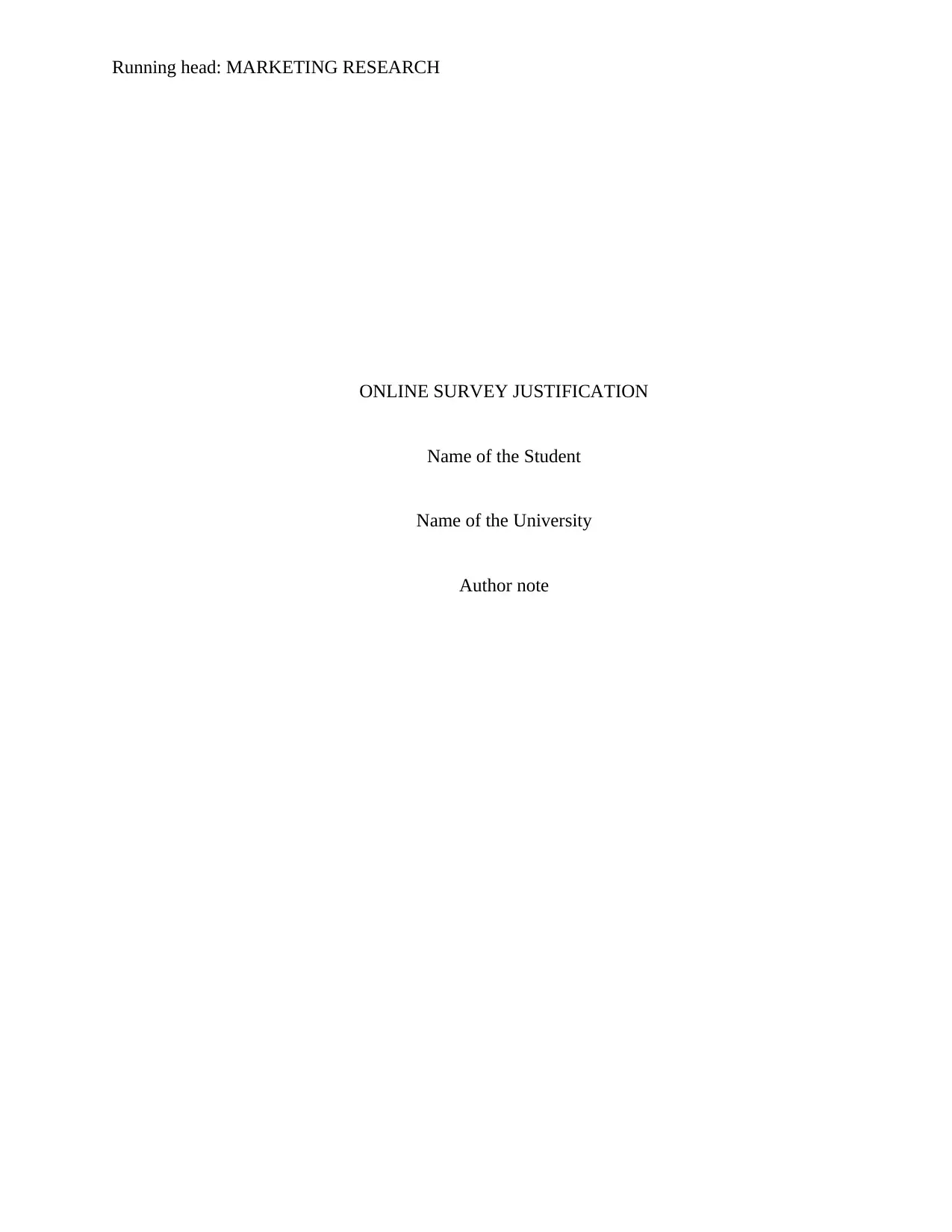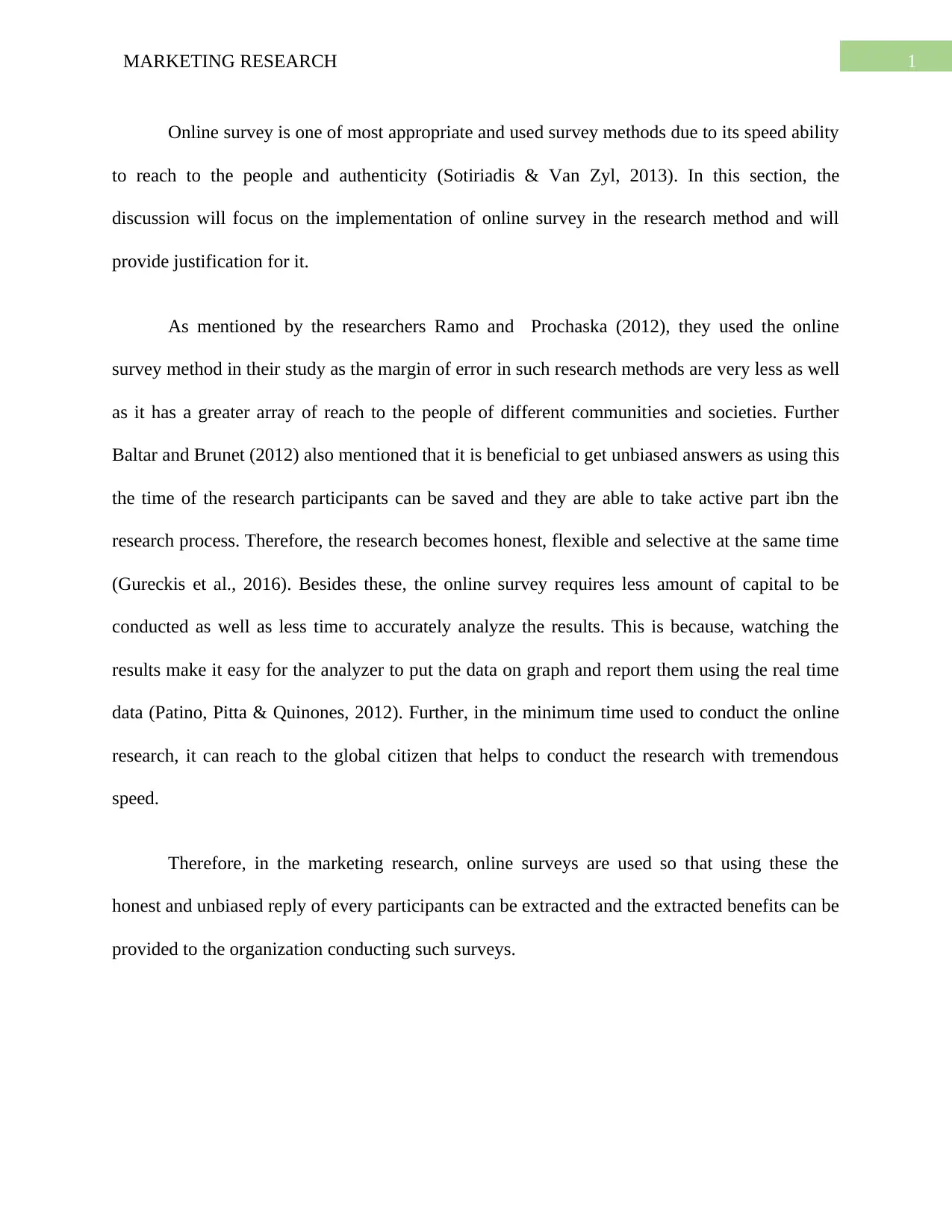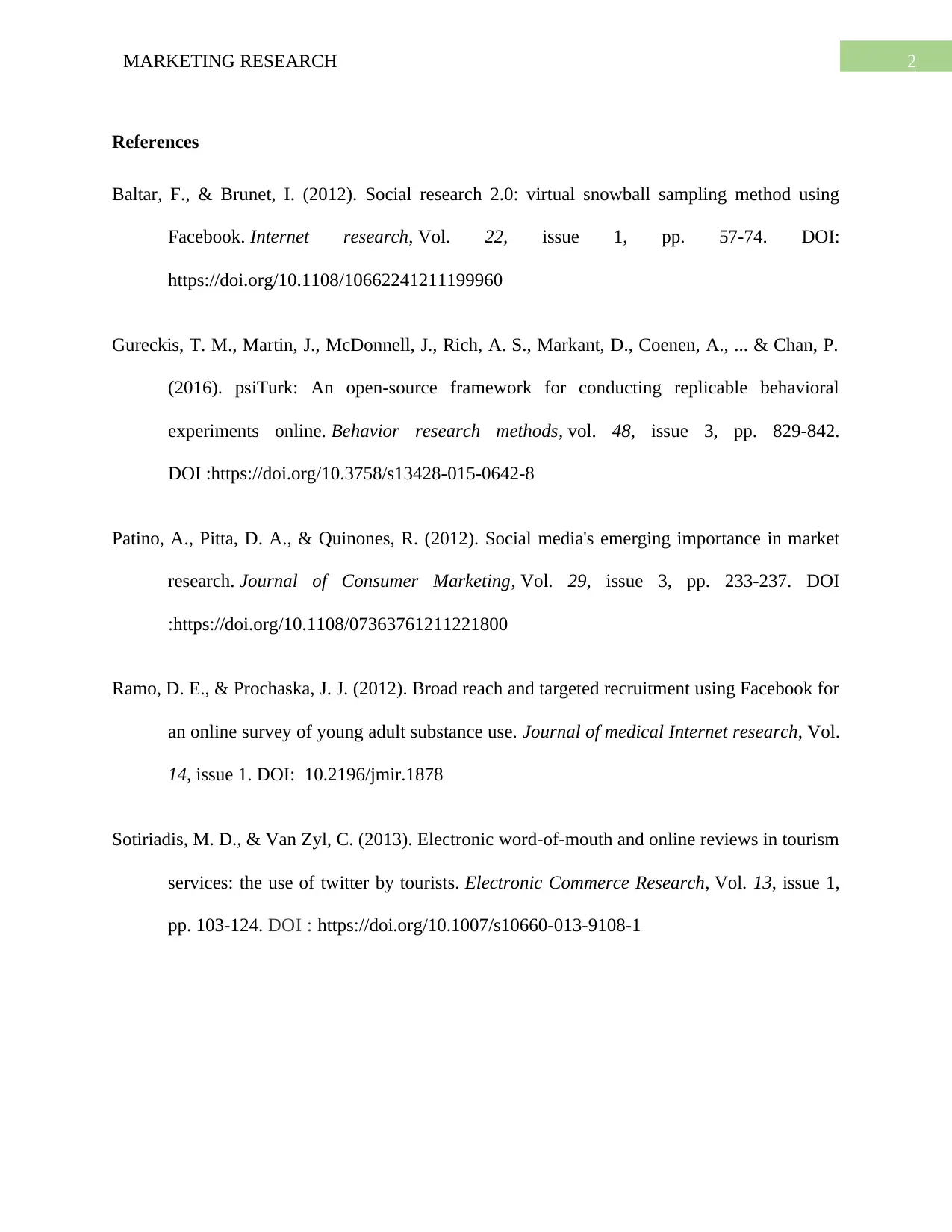Online Survey Justification in Marketing Research - Research Analysis
VerifiedAdded on 2023/06/08
|3
|585
|130
Homework Assignment
AI Summary
This assignment focuses on the justification of online surveys as a research method in marketing. It highlights the advantages of online surveys, such as their speed, broad reach, and ability to gather unbiased data from diverse populations. The paper references several studies to support the use of online surveys, emphasizing their cost-effectiveness, ease of analysis, and efficiency in reaching a global audience. The assignment underscores the benefits of online surveys in obtaining honest and unbiased participant responses, ultimately providing valuable insights for organizations conducting marketing research. The paper also provides references from various researchers and their studies supporting the use of online surveys in marketing research.
1 out of 3




![[object Object]](/_next/static/media/star-bottom.7253800d.svg)